The first, the largest and the most research-friendly. Under is the world’s largest underwater restaurant with a total seating capacity for 100 guests, it’s the first of its kind in Europe, and it also functions as a research center for marine life. The Snøhetta-designed dining experience started operating just yesterday but people are already adding it to their Norway destination lists.
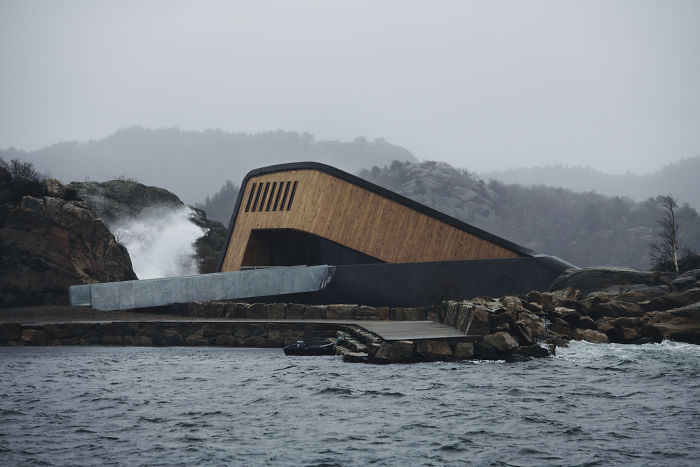
Image credits: Ivar Kvaal
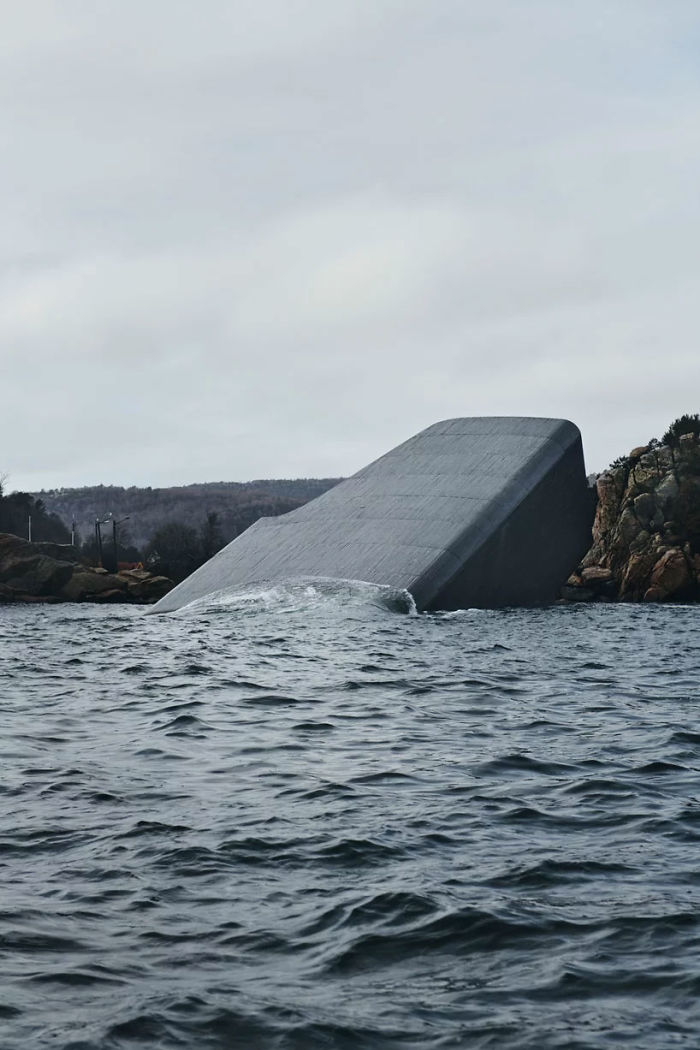
Image credits: Ivar Kvaal
In Norwegian, ‘under’ means both ‘below’ and ‘wonder.’ Half-sunken into the sea, the building’s 111-foot long monolithic form breaks the surface of the water to rest on the seabed below. Taking it a step further, the structure is built to eventually fully integrate into its marine environment, as the roughness of the concrete shell will function as an artificial reef, welcoming limpets and kelp to inhabit it.
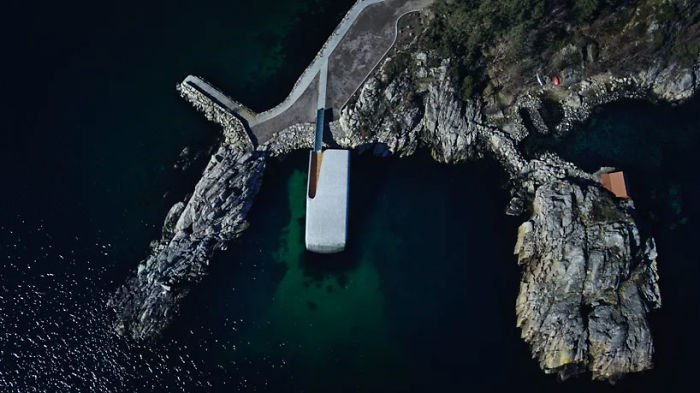
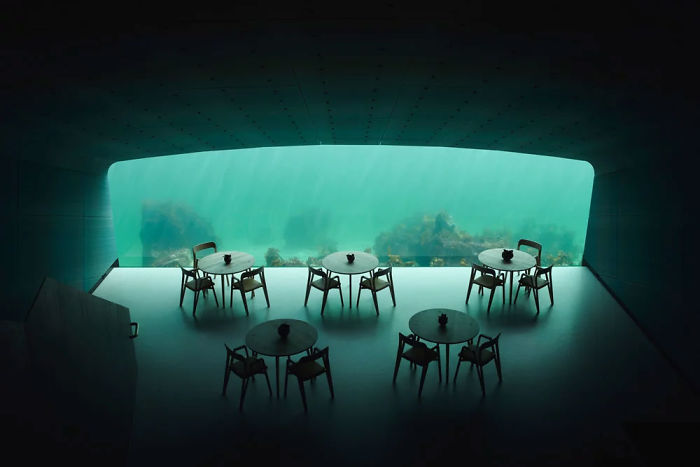
Image credits: Ivar Kvaal
Thick concrete walls allow it to withstand pressure and shock from the rugged sea conditions and, like a sunken periscope, the restaurant’s massive panoramic window offers a view of the seabed as it changes throughout the seasons and varying weather conditions.
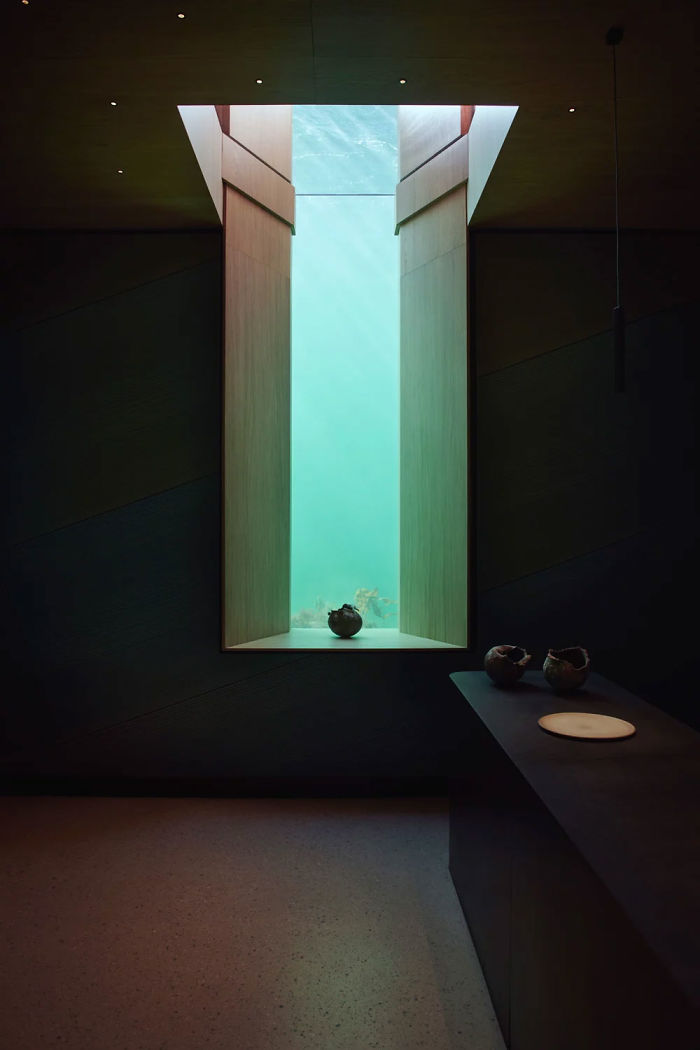
Image credits: Ivar Kvaal
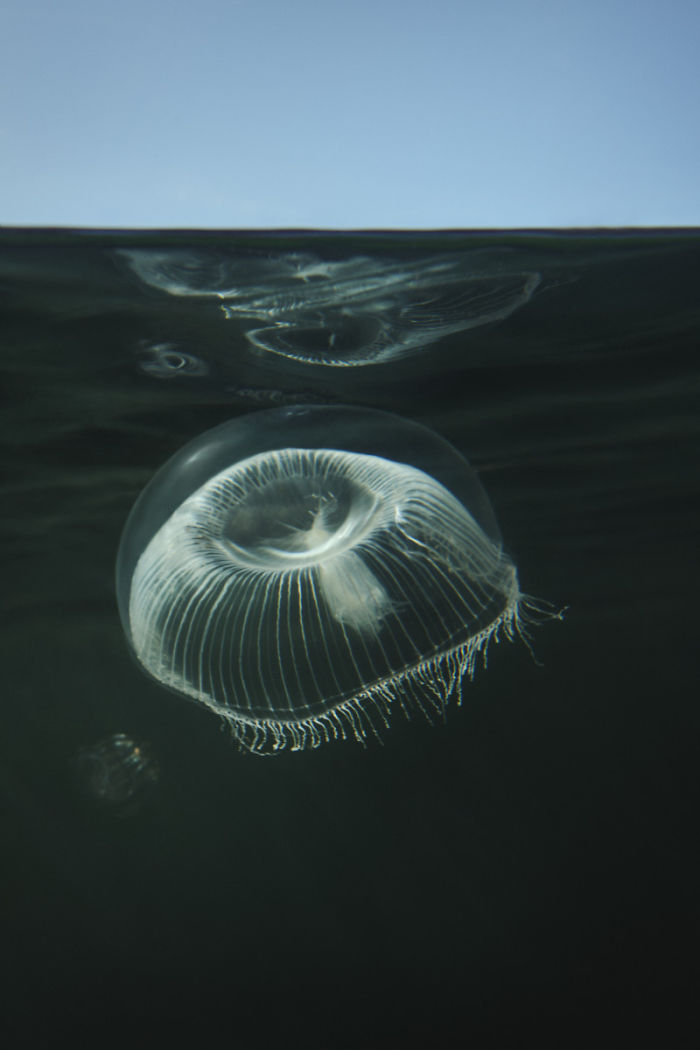
Image credits: snohetta
“Under is a natural progression of our experimentation with boundaries,” Snøhetta Founder and Architect, Kjetil Trædal Thorsen said. “As a new landmark for Southern Norway, Under proposes unexpected combinations of pronouns and prepositions, and challenges what determines a person’s physical placement in their environment.”
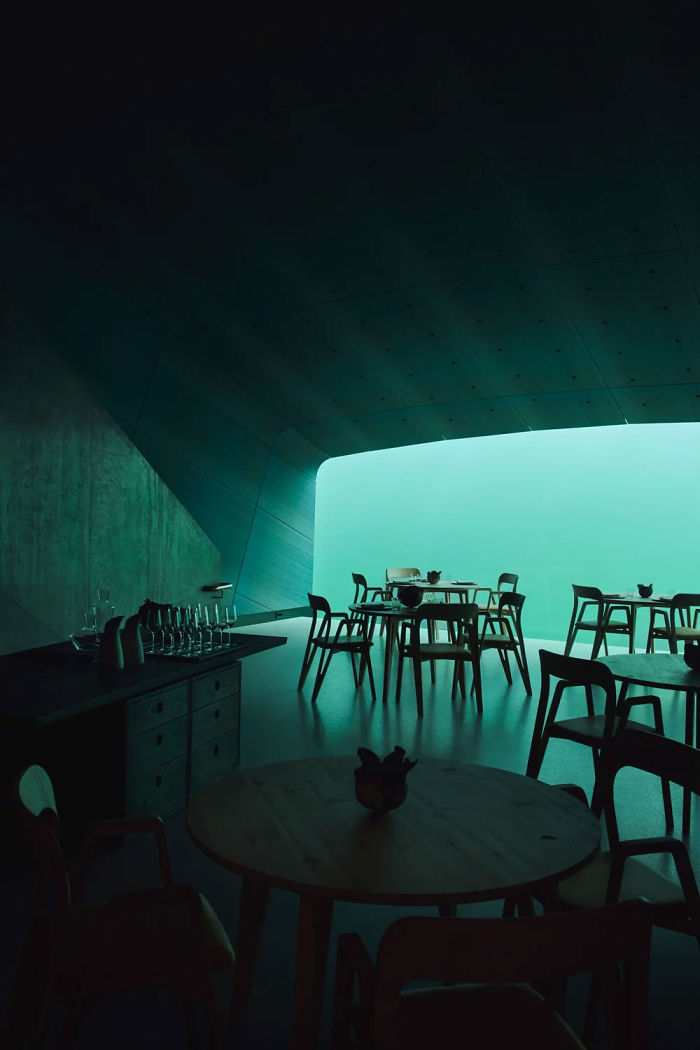
Image credits: Ivar Kvaal
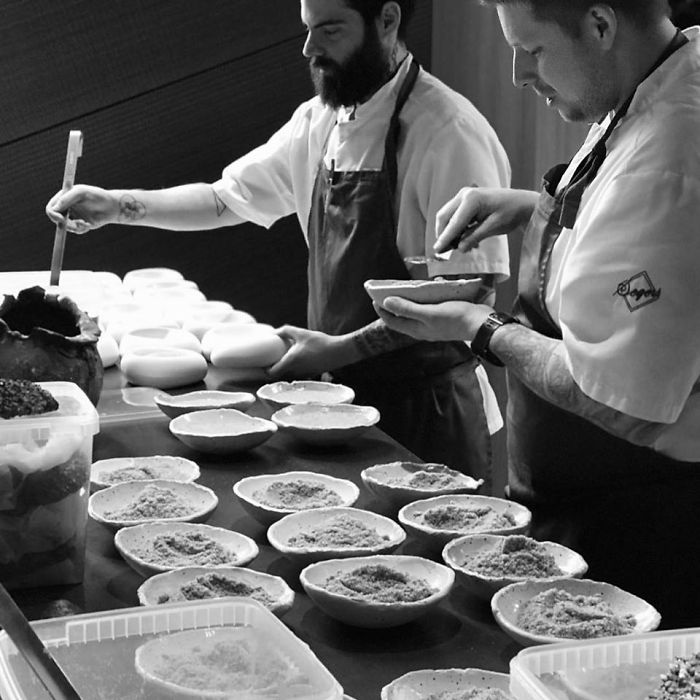
Image credits: underlindesnes
“In this building, you may find yourself underwater, over the seabed, between land and sea. This will offer you new perspectives and ways of seeing the world, both beyond and beneath the waterline.”
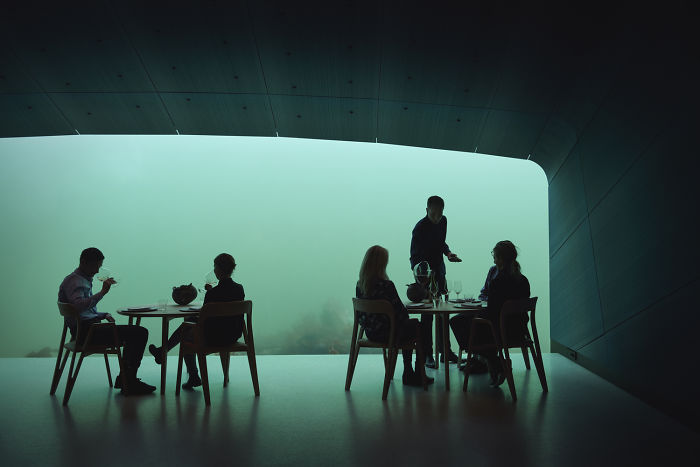
Image credits: Ivar Kvaal
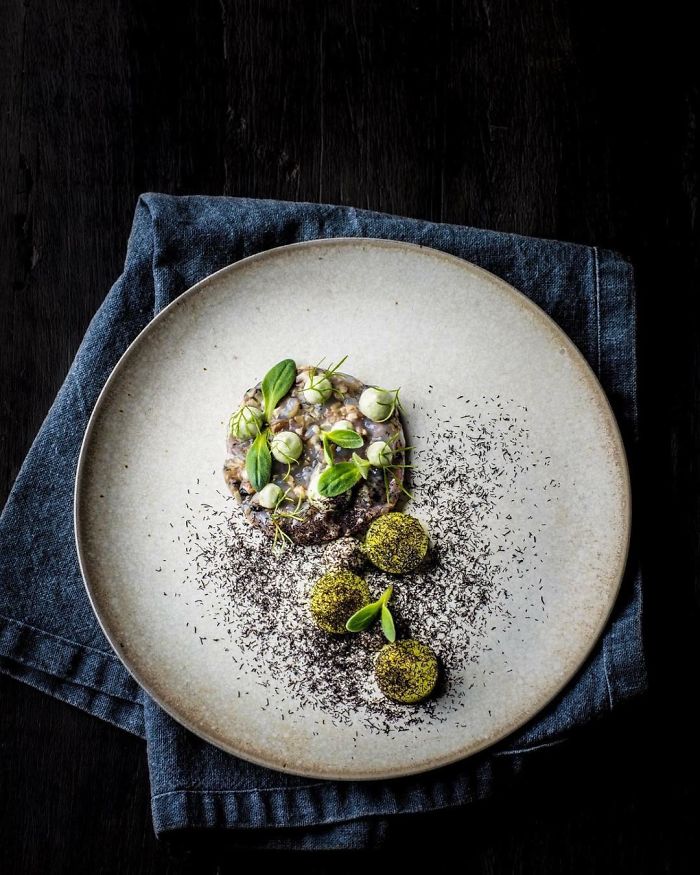
Image credits: underlindesnes
The restaurant focuses to create a fine dining experience based on high quality, locally-sourced produce, emphasizing on sustainable wildlife capture. Danish expatriate Nicolai Ellitsgaard from the acclaimed restaurant Måltid in Kristiansand is the Head Chef, bringing an international, 16-person kitchen team with experience from top Michelin restaurants.
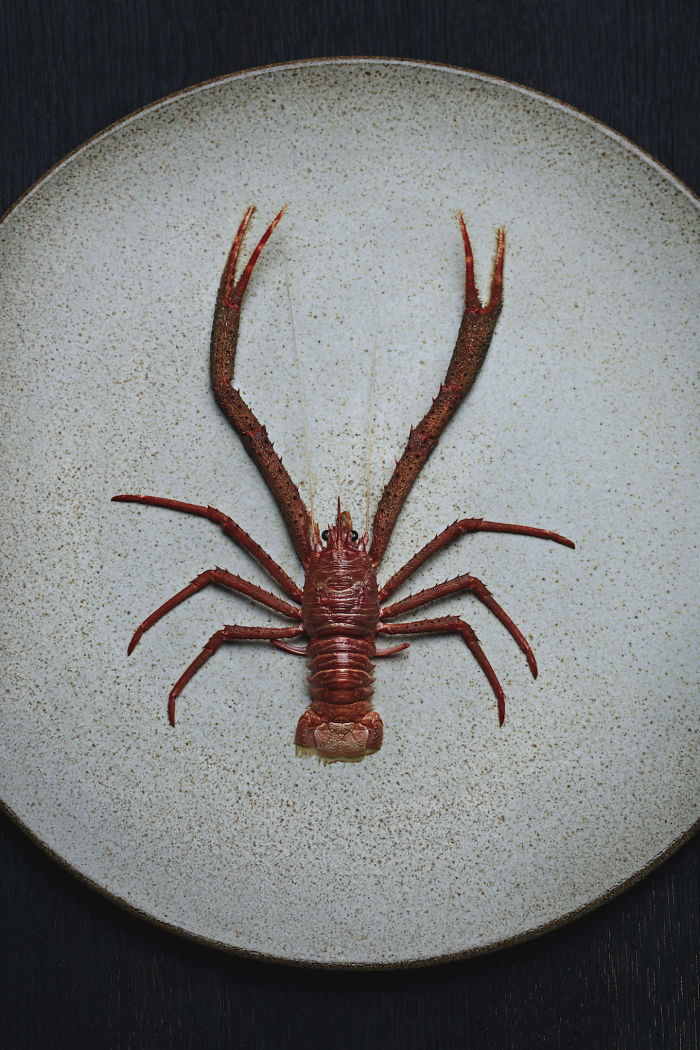
Image credits: under
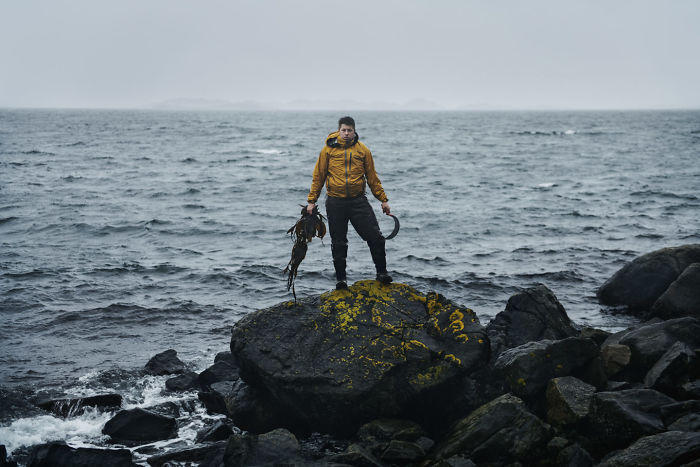
Image credits: under
In Norway, Lindesnes is known for its intense weather conditions, which can change from calm to stormy several times a day. Upon arriving at the site, the visitor’s impressions of the unruly outdoors quickly dissolve as they are ushered through into the hushed, oak-clad foyer. The rich interiors create a warm, welcoming atmosphere inside the restaurant.
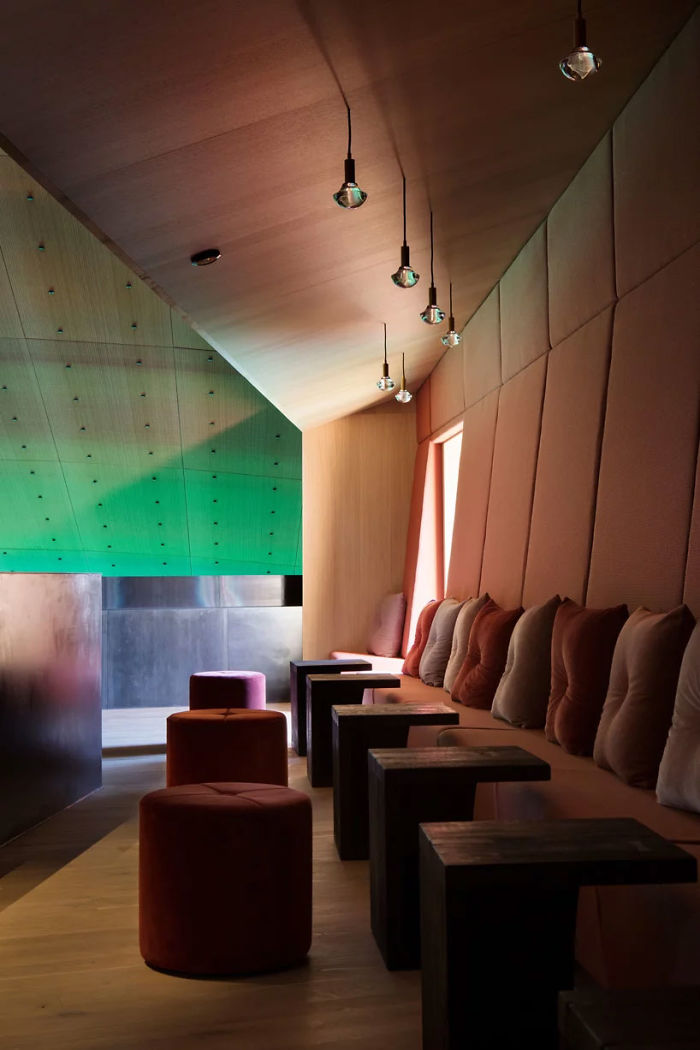
Image credits: Inger Marie Grini
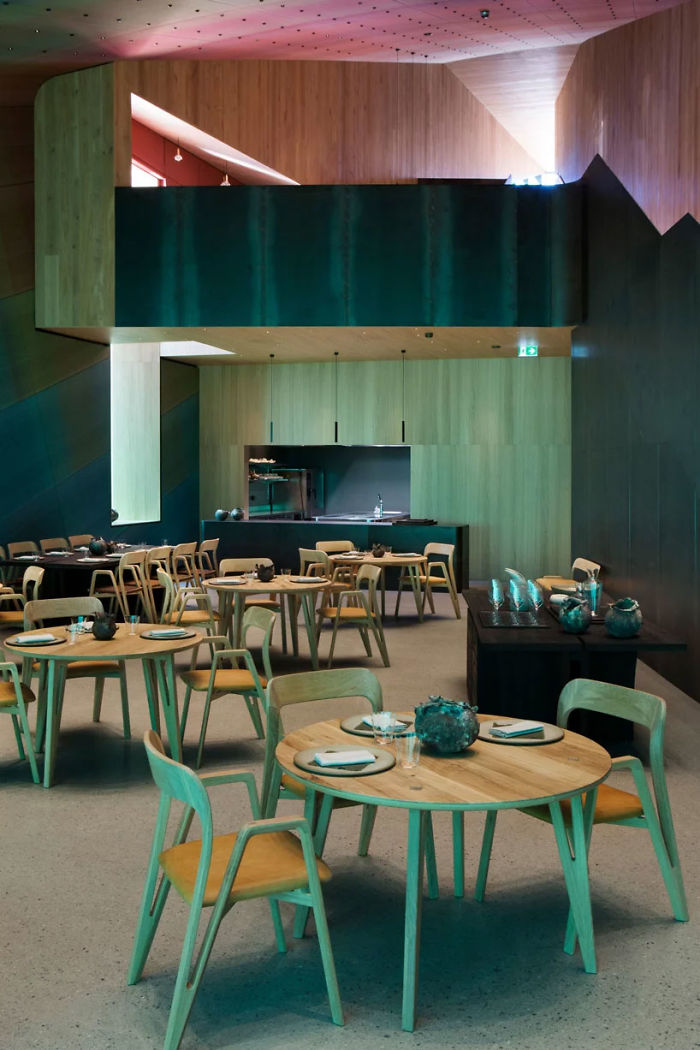
Image credits: Inger Marie Grini
As a metaphor for descending from land to sea, textile-clad ceiling panels reference the colors of a sunset dropping into the ocean, accompanying one climbing down the stairs. Moreover, the elegance of the finely woven ceiling panels provides the building with a serene ambiance.
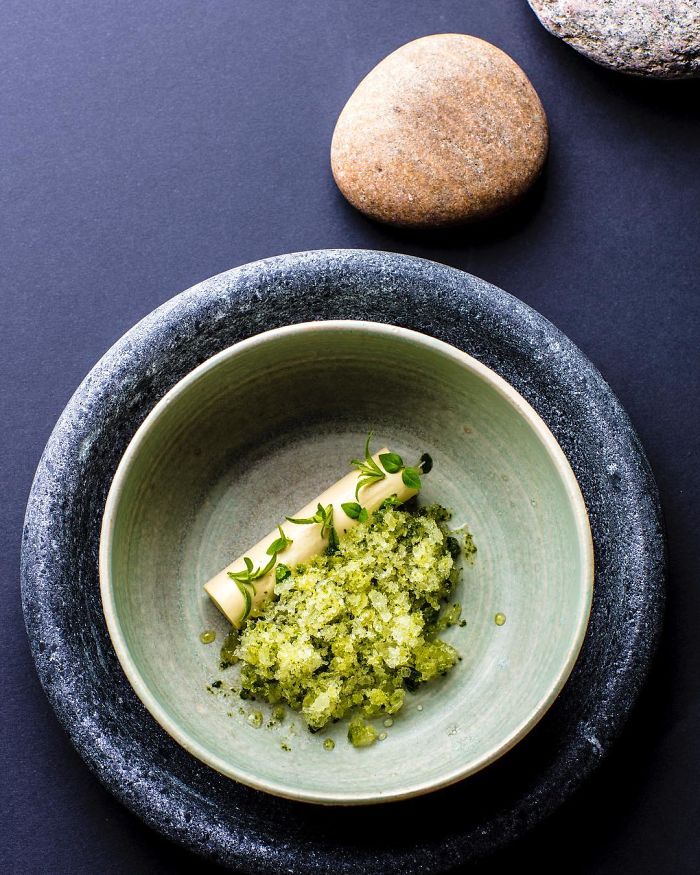
Image credits: underlindesnes
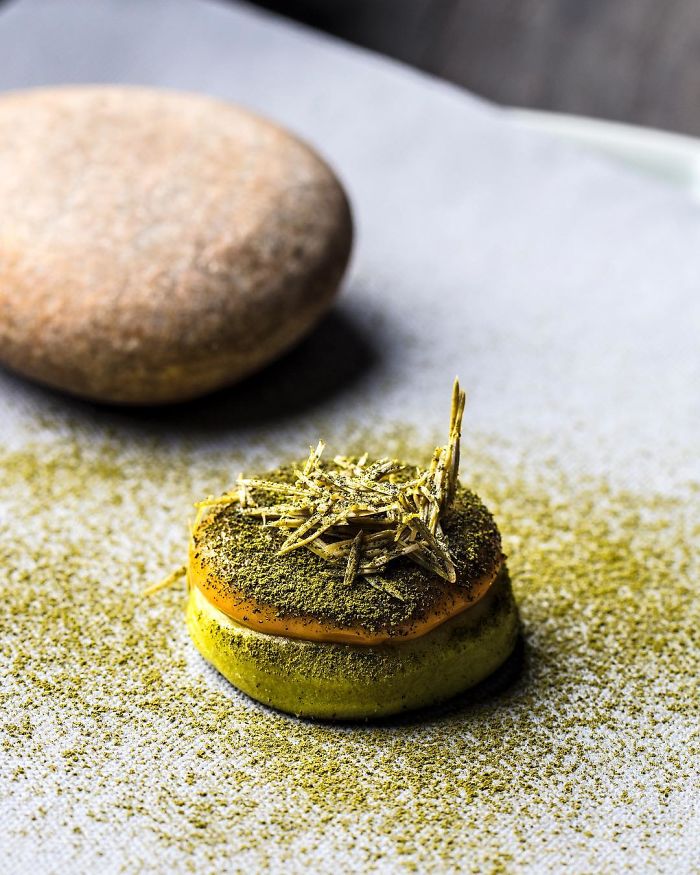
Image credits: underlindesnes
The furniture perfectly represents the philosophy of the whole project as well; to build solid structures for the future without compromising the natural beauty that lies inherent in the raw materials.
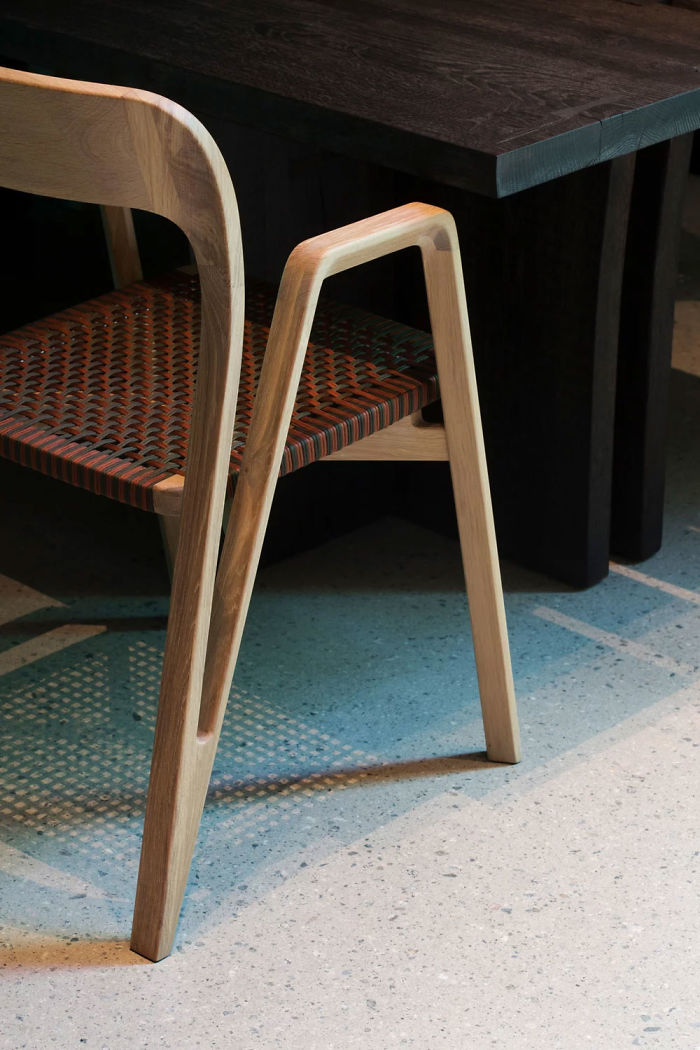
Image credits: http://www.ingermariegrini.no/
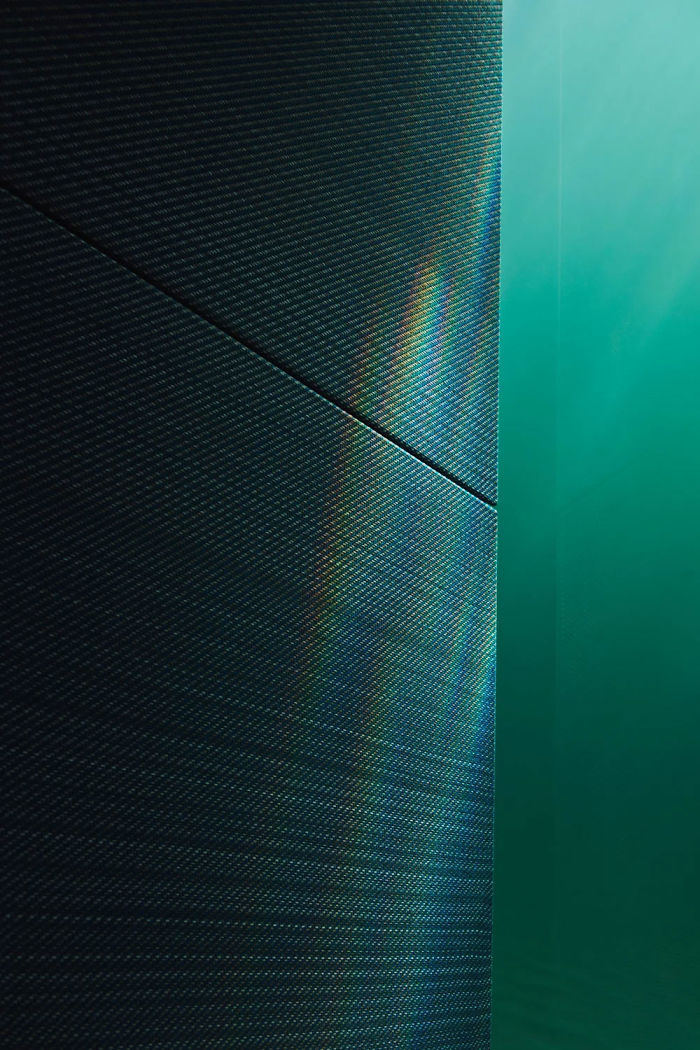
Image credits: Ivar Kvaal
But Under isn’t just a restaurant. The building also houses a marine research facility. It welcomes interdisciplinary research teams that will be able to study marine biology and fish behavior through cameras and other measurement tools that are installed on and outside the facade of the restaurant. They will be able to document the population, behavior, and diversity of species that live in the surrounding areas. The goal of the research is to collect data that can be programmed into machine learning tools that monitor the population dynamics of key marine species on a regular basis.
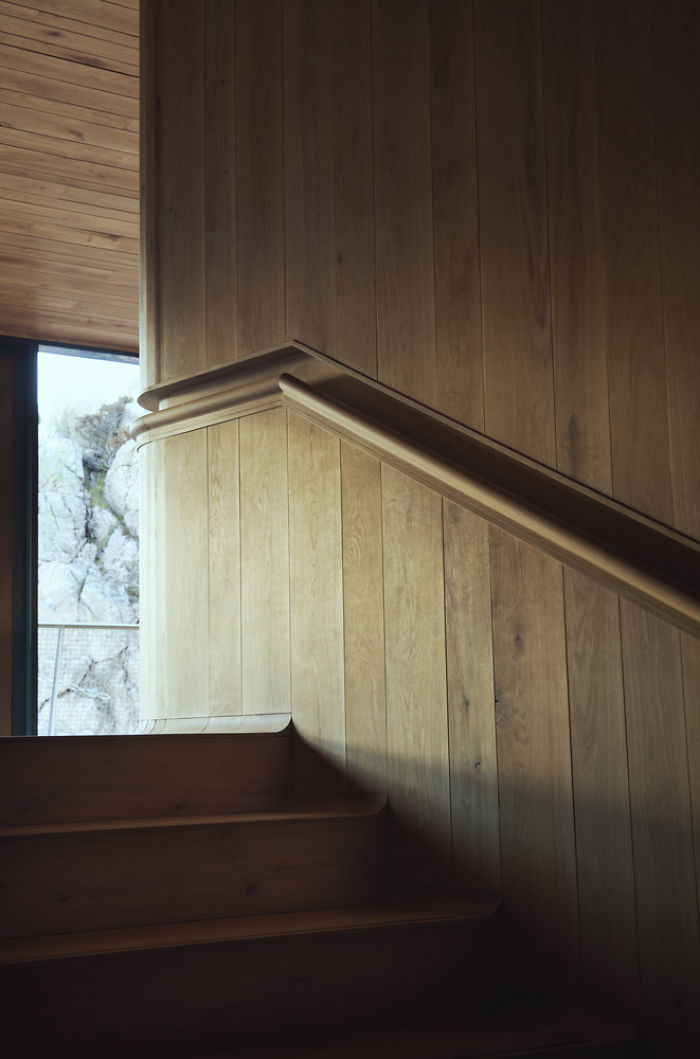
Image credits: Ivar Kvaal
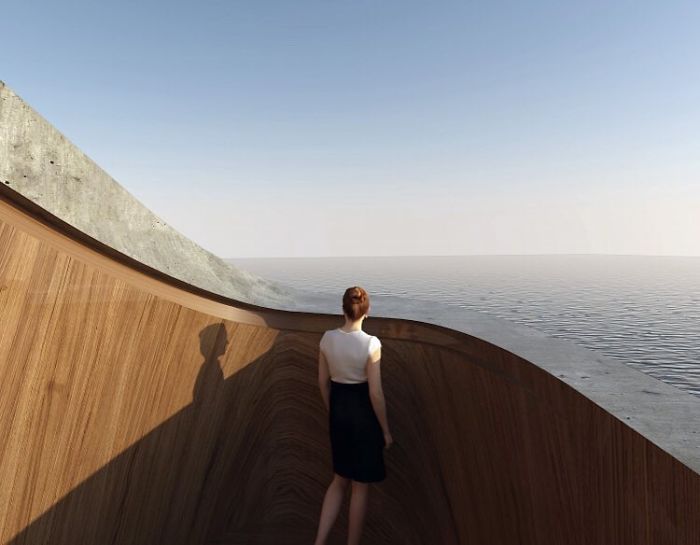
Image credits: underlindesnes
According to Snøhetta, Under is a story of contrasts: the contrast between the landscape and the sea as well as above and below. The project underscores the delicate ecological balance between land and sea and draws our attention to sustainable models for responsible consumption.
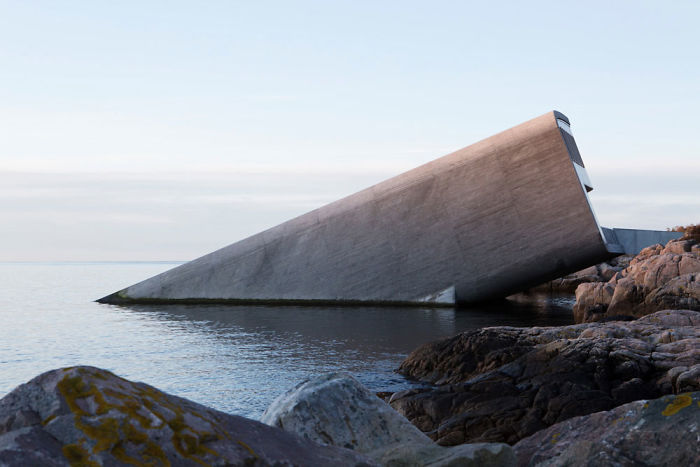
Image credits: Ivar Kvaal
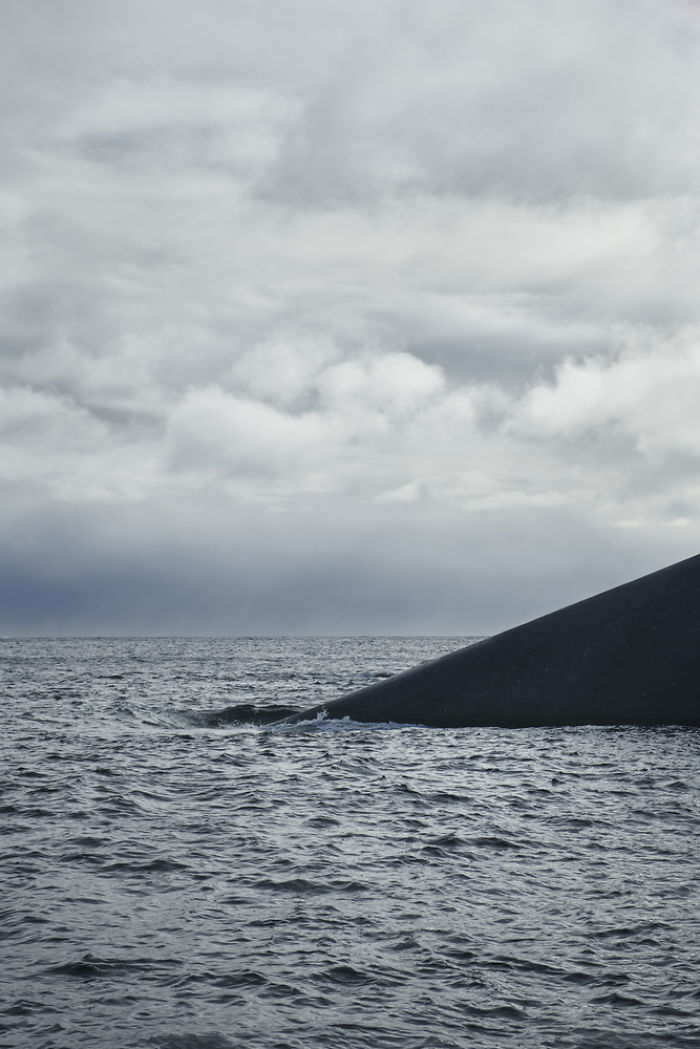
Image credits: Ivar Kvaal
It emphasizes the coexistence of life on land and in the sea and introduces a new way of understanding our relationship with our surroundings – above the surface, under the water, and alongside the life of the sea.
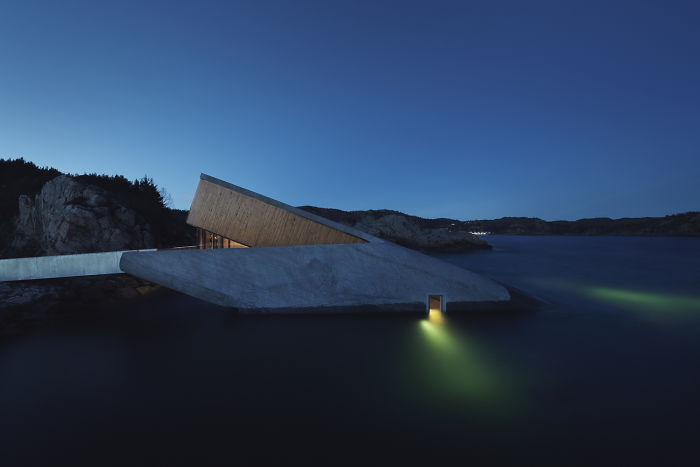
Image credits: Ivar Kvaal
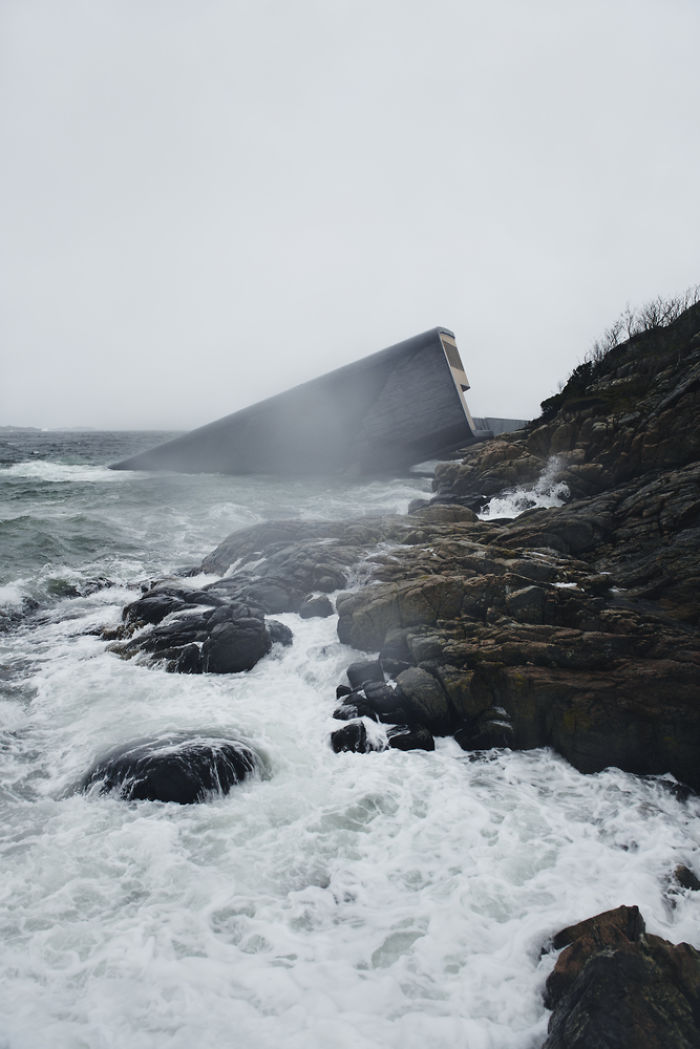
Image credits: Ivar Kvaal
“For most of us, this is a totally new world experience. It’s not an aquarium, it’s the wildlife of the North Sea. That makes it much more interesting. It takes you directly into the wildness,” Rune Grasdal, lead architect of Under, told Dezeen. “If the weather is bad, it’s very rough. It’s a great experience, and to sit here and be safe, allowing the nature so close into you. It’s a very romantic and nice experience.”
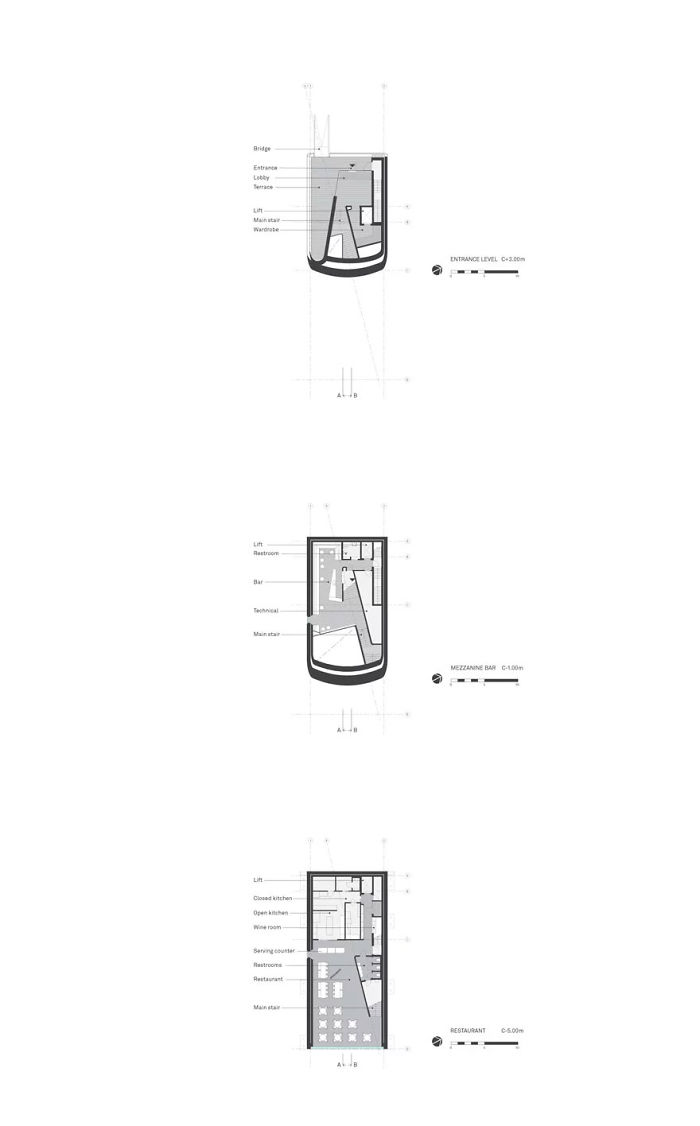
Image credits: Snøhetta

Image credits: Snøhetta

Image credits: Snøhetta
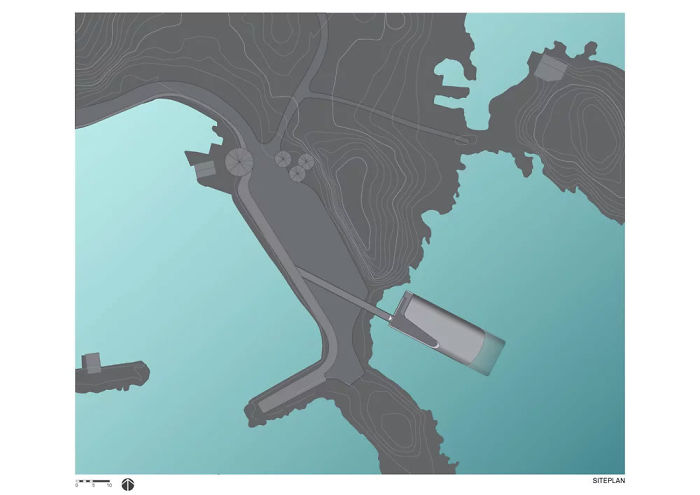
Image credits: Snøhetta
“The idea was to make a tube that would bring people from above sea level down under the sea,” Grasdal said. “That transition is easy to understand, but it’s also the most effective way to do it. It also feels secure, but you don’t feel trapped.”
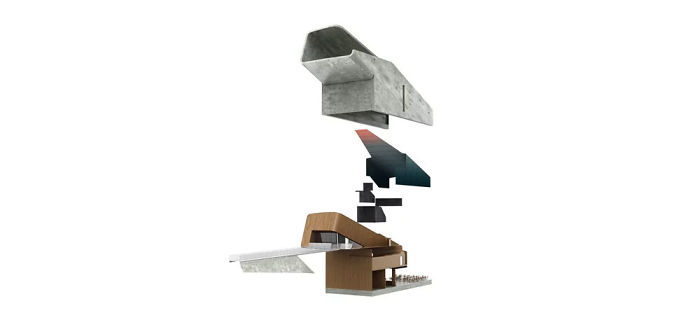
Image credits: Snøhetta
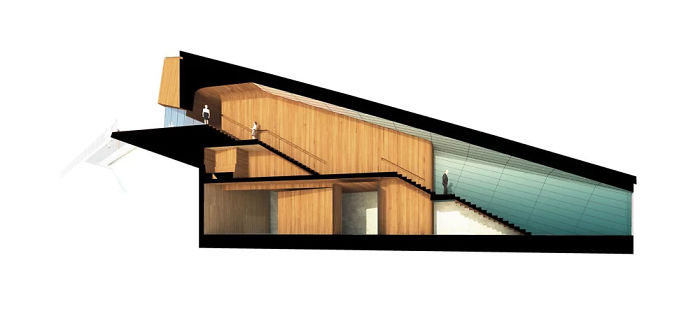
Image credits: Snøhetta
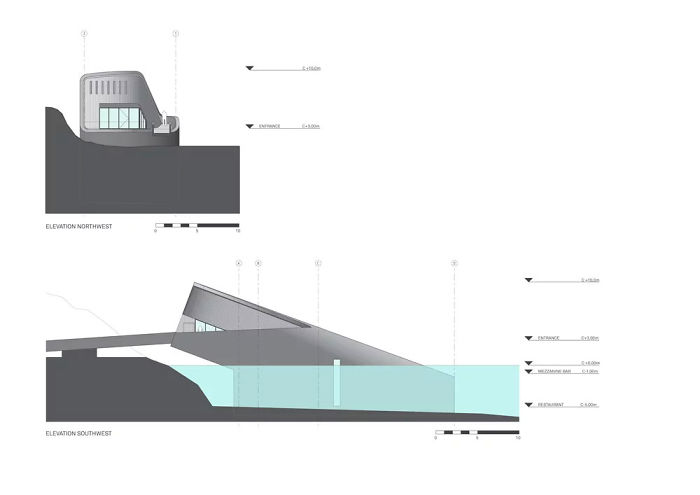
Image credits: Snøhetta
from Bored Panda http://bit.ly/2FshpgW
via Boredpanda
